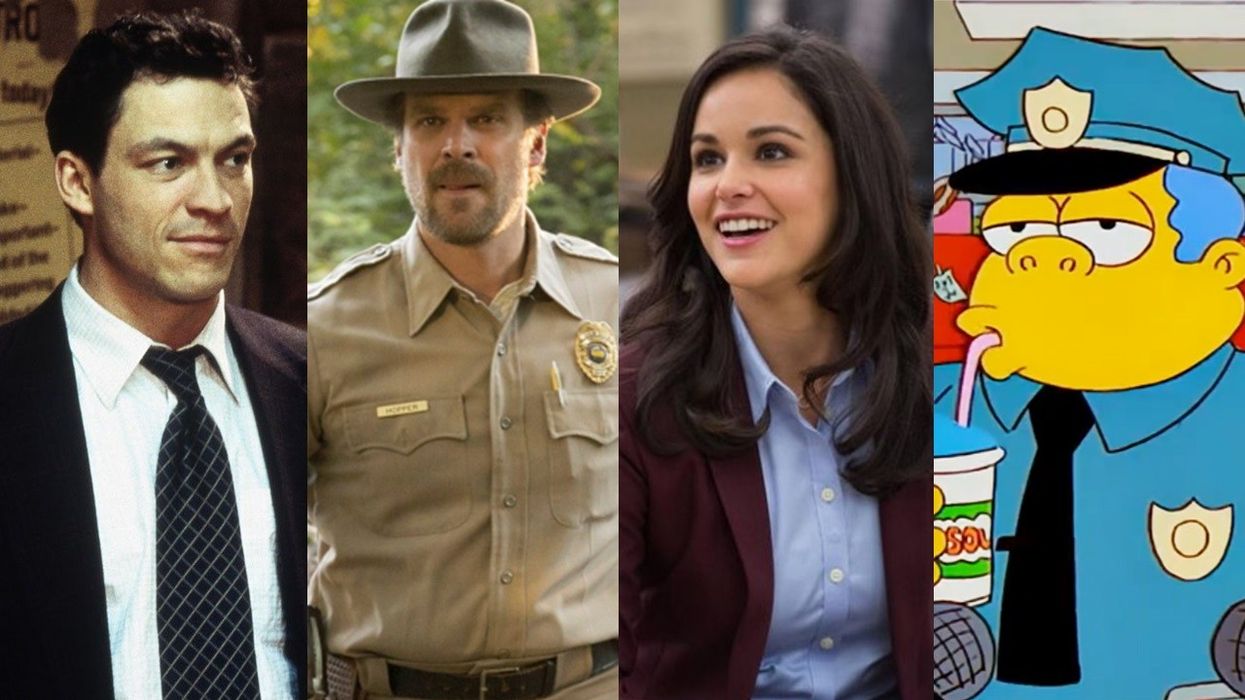Have TV Crime Shows Helped Normalize Injustice?
Film and television are the most important tools in fostering change, but they can also be part of the problem.

If I asked you to name me a TV show about police officers you probably wouldn't have a hard time coming up with one. In the chaotic world, the depictions of these officers and the storylines they follow have an incredible influence over the people watching the stories.
Enter The Color of Change, an initiative that studied all the cop shows on the air from 2017-2018, to see how these shows may have normalized the injustice we see on the world today. They also studied who's writing these stories in general.
Some of the overarching findings are both shocking and disheartening.
"There were 275 writers, 27 showrunners and 42 creators who were credited for the 26 series examined in the 2017–2018 season. And 81% of showrunners (21 of 26 series) were white men. Only 37% of writers across the genre were women; just 11% of writers were women of color."
Obviously, these viewpoints only reflect a small window of what our vast society holds.
The simple answer is to pressure companies into hiring more diverse voices, but that's not a perfect solution.
What does The Color of Change want?
"We need new standards to be socialized and implemented across the industry. Those standards must be backed up by meaningful incentives that reward responsible storytelling, as well as by real consequences that hold executives accountable when they enable (or even encourage) demonstrably harmful stereotypes and inaccuracies to go unchecked."
Let's go over some of the key findings of the report and detail how change can happen.
How has Television Helped to Normalize Injustice?
Rashad Robinson, Executive Director of Color Of Change, had this to say in the forward of the study, "In the world of television, everyday people of color are generally perpetrators, not victims. People of color are generally supportive of the system and endorsers of the status quo, not agitators for changing it. Those accused by the police are the ones who cunningly manipulate the system, rather than being manipulated and coerced by it. Junk science like “bite-mark” analysis, and other debunked forensics, infallibly identifies the guilty rather than bolstering cases against the innocent (or even serving as the pivotal blow against them). None of that is true in the real world, but in the world of scripted television these are founding principles."
This is obviously an issue.
And there are hard facts to back it up.
Let's dig into one of the more specific numbers.

The Good Guy Endorser Ratio
What is the "Good Guy Endorser Ratio?" It refers to wrongful actions depicted by the Good Guy in the story versus the actions depicted as the Bad Guy in the story. These numbers are important because they expose how many crime shows teach use to react to police and their actions.
What rogue behaviors are seen as okay or enjoyable to the viewer?
And how are those behaviors directed toward the people within the story?
How does embracing those behaviors change the way we see reckless behavior in real life?

Most series show that whatever a cop does is inherently right, and therefore we shouldn't question it.
But that does not translate into the real world. All it does is skew the facts we look at in real life and lessen the impact of what may actually be poor decisions. Thus affecting the way we view policing in modern society.
How can we change?
Talk is cheap, and action requires a lot more than just viewing the results.
As Color of Change states, "The many showrunners and writers who want to do better must be supported in doing so. They must be given the time, talent, resources, and approval required to break convention and change course."
So, how do we implement those goals?
I think diversity initiatives are a good start, but we also have to hold the creators we revere and their networks accountable. Make sure they hire showrunners with diverse backgrounds and people representative of all genders and all background experiences.
I want to stress that this will result in better television. More people will be able to see their own stories projected onto screens and we'll develop deeper empathy for people that we may never encounter in daily life.
Things can and will get better, but only if we are brave enough to look at these numbers and not to settle for them.
Only if we promise to change them. And actually do it.













